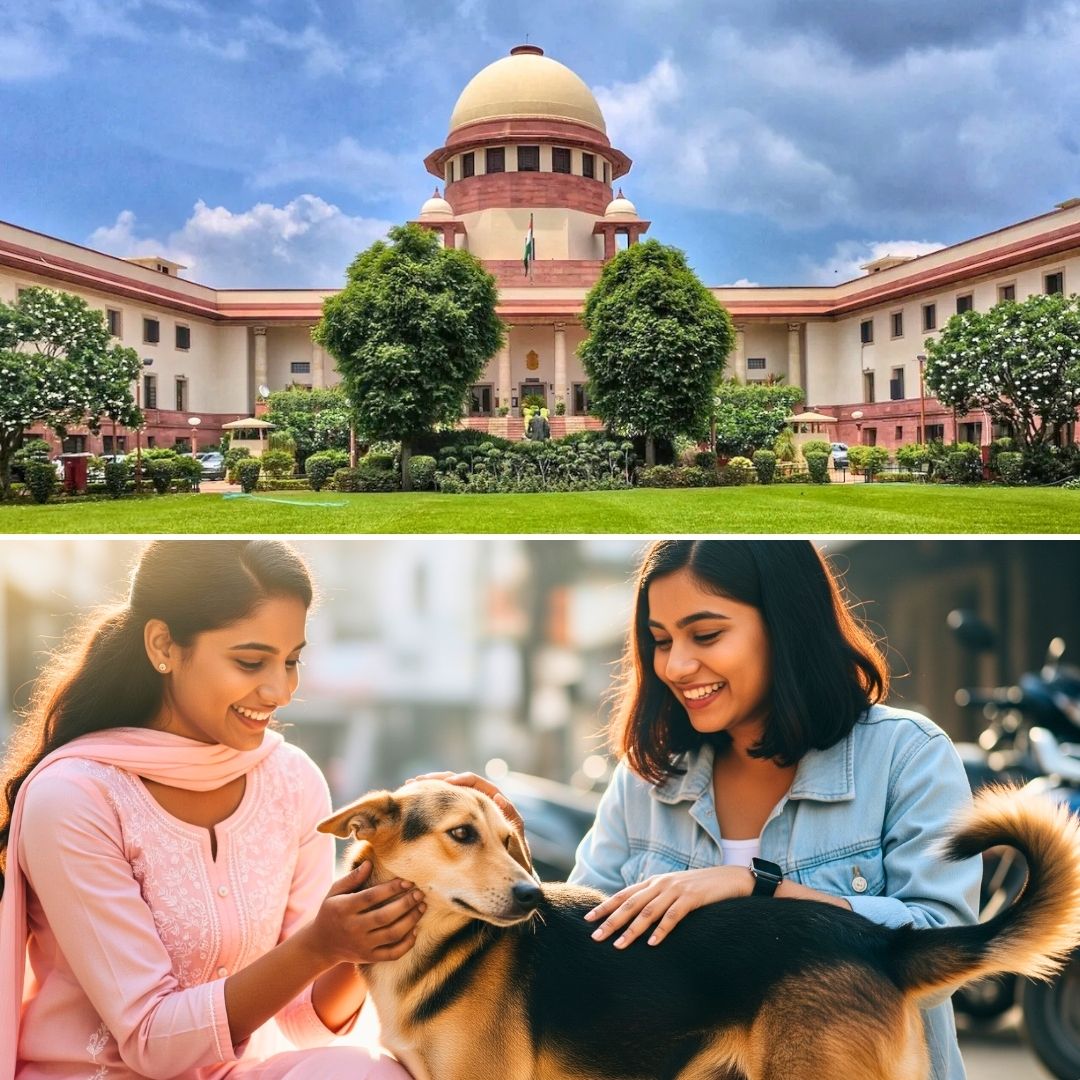The Supreme Court of India on August 22, 2025, revised its earlier order concerning the management of stray dogs in Delhi and the National Capital Region (NCR). The court ruled that stray dogs, after undergoing sterilisation and immunisation, must be returned to their original locations, except for those infected with rabies or displaying aggressive behaviour, who should be kept in shelters.
The court expanded the case pan-India, implicating all states and Union Territories, and instructed authorities to create designated feeding areas while banning public street feeding. The hearing was conducted by a special three-judge bench, which postponed further proceedings by eight weeks.
Humane Approach Balancing Public Safety and Animal Welfare
The Supreme Court’s modified directive acknowledges the importance of humane treatment of stray dogs by mandating that sterilised and vaccinated strays be released back to their familiar habitats. However, it also prioritises public safety by ordering that dogs confirmed rabid or showing dangerous aggression be confined in appropriate facilities.
Justices Vikram Nath, Sandeep Mehta, and N V Anjaria emphasised the need to implement the Animal Birth Control (ABC) Rules, 2023, which discourage relocation of dogs to new areas and promote science-based population control.
Further, the Court restricted street feeding of stray dogs, directing municipal authorities to establish designated feeding zones within wards to avoid nuisance. It warned that any person obstructing dog capture efforts or violating feeding rules will face penalties ranging from ₹25,000 to ₹2 lakh. Helplines will be created for reporting dog bites and the presence of aggressive dogs.
Complex Background and Pan-India Implications
The case began in July after a news report highlighted frequent stray dog attacks and deaths from rabies, especially among children, sparking public outrage. On August 11, a two-judge bench ordered removal and relocation of all stray dogs from Delhi-NCR localities to shelters, prompting protests from animal rights groups and citizens who argued such relocation is inhumane and ineffective.
After multiple petitions challenged this order, the Supreme Court referred the matter to the current three-judge bench to resolve conflicts with previous court decisions and frame uniform guidelines. The bench expanded its jurisdiction to include all states and Union Territories, aiming to consolidate efforts for humane and safe management of strays nationwide.
The Logical Indian’s Perspective
The Logical Indian welcomes the Supreme Court’s balanced decision that upholds compassion for stray animals while addressing safety concerns. Releasing sterilised and immunised dogs back to familiar localities respects their welfare and ecological role, while isolating rabid or aggressive animals ensures community protection.
This integrated approach calls for collaborative efforts among government bodies, animal welfare organisations, and citizens to create safe urban spaces where humans and animals coexist harmoniously. We invite readers to reflect on how communities can nurture empathy, responsibility, and coexistence in managing urban wildlife challenges.










